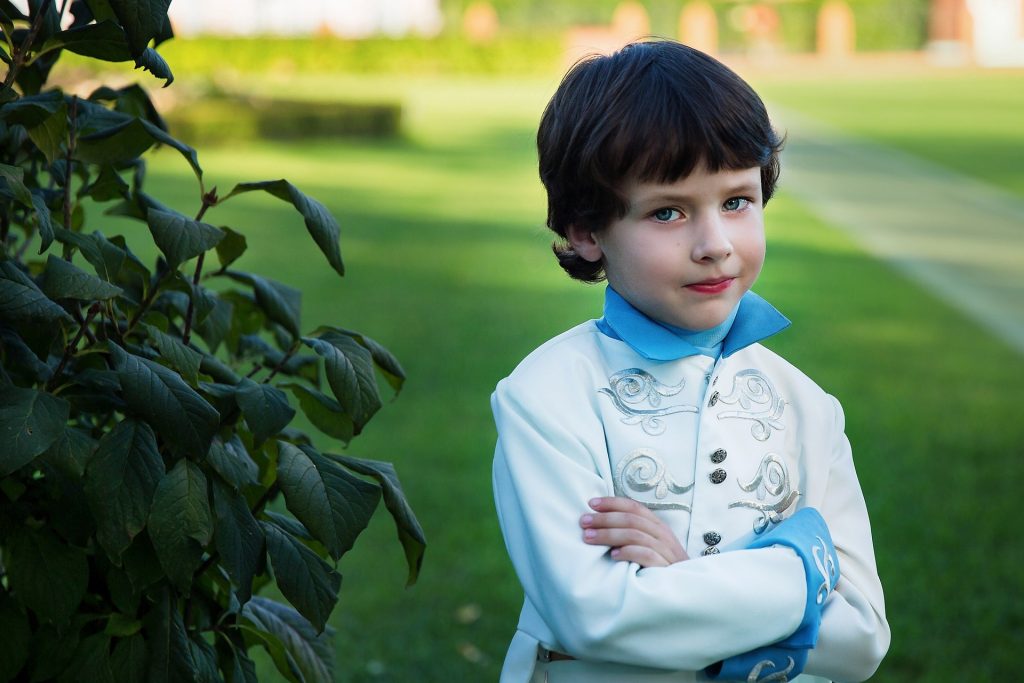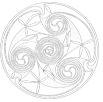Maturation for the Mascot
By Paul Dunion | January 16, 2022

The youngest child in a family often occupies the role of Mascot. If the stress in the family is not excessively severe, the child in this role knows how to play, have fun, and bring lightness to family life. This child’s gift of love is an offering of endless comedy with the price being arrested development. However, if family stress builds, the mascot hides fear and confusion behind a permanently painted smile. Family members get to release pent-up tension as they laugh and hoot at the antics of the family jokester. In fact, the jocularity stimulated by the Mascot may be the only authentic emotions expressed in the family.
Sharon Wegscheider-Cruse suggests, “You don’t have to be with a family more than a few minutes to know which child is playing this part. He may act cute and helpless, or interrupt and do “crazy” things. He may beguile you or bedevil you, but he’s very hard to ignore.” (p. 140, Another Chance : Hope and Health for the Alcoholic Family.) If the Mascot locks into his or her role without repair, then the repertoire of slapstick trails them into adulthood. Such a primitive way to cope will have varied injurious implications.
Challenges Facing the Mascot
*Faces significant levels of denial. As Mascots view their role as the essence of their identity, it becomes very easy to deny that there is any kind of a problem. Their role exempted them from living life on life’s terms, having to face the tension and ambiguity of real-life situations. Why give up simply having a good time?
*Often misdiagnosed. Mascots often go misdiagnosed initially with ADD and later with manic episodes.
*Learning impediment. Remaining a clown, striving to engage and distract classmates with a variety of antics will not lend itself to classroom learning. If Mascots are lucky, they might see a formal education offering a ticket to professional advancement, and likely lack the depth to see their education as possibly opening a door to a vocation.
*Risks being locked into the puer personality. The puer or eternal boy can become a life-long persona. Mascots have repressed their ability for introspection so as not to allow anything that might interrupt their parade.
*Loses friends. As their friends grow and mature, Mascots remain gridlocked in an infantile pattern. Friends who have moved on from juvenile mannerisms and responses no longer find the Mascot all that entertaining.
*Loss of intimacy. As Mascots experience a measure of arrested development, their capacity for in-depth relationships can be severely restricted. They likely will lack an ability to offer genuine empathy, address conflict and know how to offer an understanding of themselves to the relationship.
*Immature spirituality. Convinced that there are no real complex questions, Mascots either ignore their spiritual lives or reduce it to periodic church attendance accompanied by a perfunctory adherence to dogma.
Healing for the Mascot
*Psychological education. Mascots can gain a great deal by understanding their role in a stressed system. Of course, such understanding will not come easily since it is the antithesis of the Mascot’s way to cope. The hope is that they can value their propensity for lightness without the illusion that lightness can address all that life has to offer. An essential learning is that they were over-protected as children and offered a deluded sense of reassurance that all was well.
*Grieving. The more Mascots learn about their role and the status of their family of origin, they begin to identify losses. Their losses include honest disclosure about family challenges, encouragement to access inner strengths and resources, and the modeling of effective coping mechanisms. Although losses are not easy to address, it very well might mean the beginning of Mascots daring to get honest about what dwells within.
*Acceptance of intuition. As Mascots work their Recovery, they may access memories of vague intuitions they experienced as a child. These old intuitions likely were informing the child about the stress facing the family. They can begin to trust the pulse of their current intuitions.
*Scared and confused. As their compulsion for humor subsides, the emotions of fear and confusion likely surface. They can learn to shamelessly feel these feelings. A key is to understand that as a child they did not possess enough inner resource to navigate these feelings. Confusion likely resulted because their intuitions conflicted with the parental reassurance they were receiving. Fear would also get ignited due to the incongruence of their experience.
*Practicing silence with breath. A helpful interpersonal practice is to simply explore being silent and breathing when interacting with others. A first step is to relinquish jocularity and learn to hold the ensuing tension by focusing on the breath. It will be a sizable leap for Mascots to let go of comic engagement and focus on their interior world in the presence of others.
*Releasing tension. Mascots are so familiar with working with tension by slipping into a comedy routine. New methods for releasing tension will be critical in the support of emotional maturity. Deep breathing, exercise, yoga, tracking internal sensations, meditation, therapeutic massage, and acupuncture are helpful ways to address the release of tension.
*Easing into ambiguity. The comic relief exercised by Mascots derails them from leaning how to relate to the ambiguous nature of what gives meaning and depth to life. Hence, benchmarks for maturation such as wrestling with an ability to be authentic, courageous, and compassionate are not entertained by Mascots, or are endeavors receiving minimal attention. Mascots can gradually learn to entertain what both gives meaning and is ambiguous by eliminating hilarity and moving gradually toward holding more curiosity. Ultimately, their relationship with ambiguity can unfold a mature spirituality – one galvanized by curiosity, devotion, personal values, and a longing for unity consciousness.
Unlike the other family roles, Mascots are encouraged not to grow up. The other roles certainly carry some impediment to maturation, but no one is viewing those roles as appropriately infantile. At least one parent is benefiting or distracted from the Mascot’s shenanigans as well as attempting to protect the Mascot from the turmoil in the family. If Mascots experience enough loss or pain, they may seek the help and support that can point them in the direction of their own maturation.
